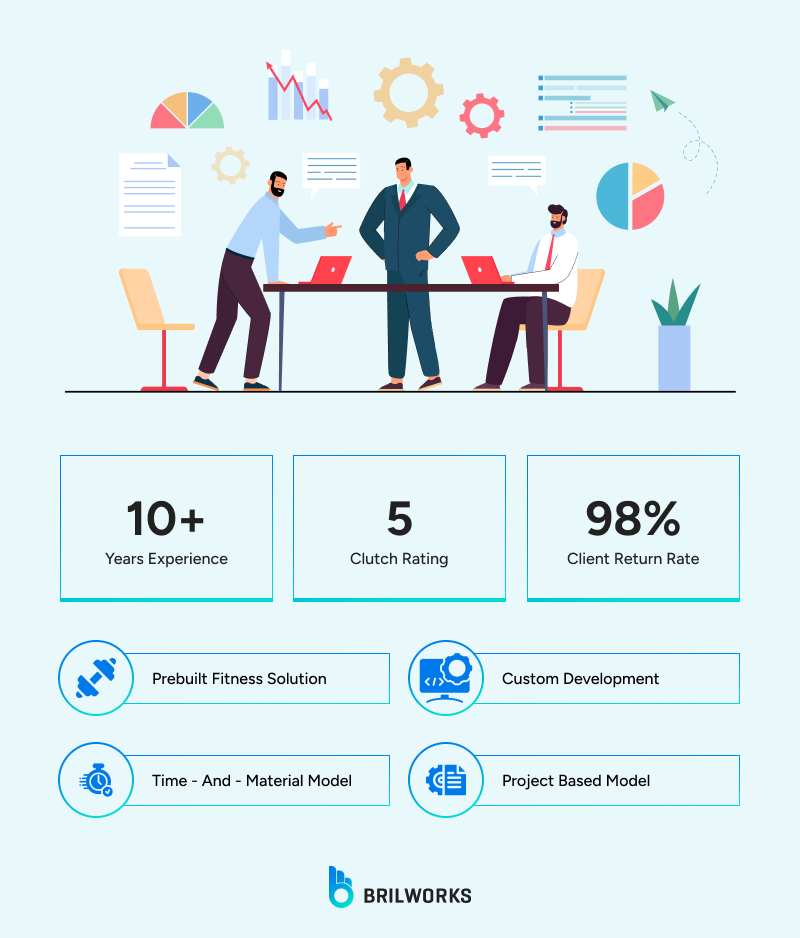COOPERATION MODEL
ARTIFICIAL INTELLIGENCE
PRODUCT ENGINEERING
DevOps & Cloud
LOW-CODE/NO-CODE DEVELOPMENT
INDUSTRY
FRONTEND DEVELOPMENT
CLOUD DEVELOPMENT
MOBILE APP DEVELOPMENT
LOW CODE/ NO CODE DEVELOPMENT
EMERGING TECHNOLOGIES








The decision for agencies and entrepreneurs is no longer if they should offer digital solutions, but how fast they can deploy. White-label development has evolved from being a cost-saving option to a important strategy for achieving rapid time-to-market.
A white-label solution is a pre-built, production-ready product developed by one company and licensed to another (the reseller) for rebranding and resale as their own proprietary offering. This model is essential for:
Marketing & Development Agencies: Expanding service portfolios without hiring a new in-house engineering team.
Vertical SaaS Startups: Launching a product in a niche and focusing capital on sales and branding rather than foundational R&D.
Choosing a white-label partner over a full custom build is the strategic default for most businesses, driven by three non-negotiable market demands:
Today's users expect sophisticated features as a baseline. White-label providers now integrate these complex technologies, particularly AI/ML, directly into the core platform.
Custom Build Challenge: Implementing advanced features like AI recommendations or complex data reporting requires specialized, expensive developers and extensive R&D.
White-Label Solution: Resellers gain immediate access to these AI-powered features as a managed service, allowing them to compete with industry giants from day one.
The true cost of custom software is not the launch price, but the perpetual maintenance and scaling fees. Custom projects are prone to budget overruns and incur "technical debt"—shortcuts that make future updates costly.
Custom Build Challenge: Every OS update, security patch, and user spike requires billable hours from your retained developer team, leading to unpredictable monthly expenses.
White-Label Solution: The vendor handles all infrastructure scaling, security updates, and maintenance. The reseller operates on a predictable subscription model, eliminating the internal maintenance load and ensuring the architecture is built to handle explosive growth.
Modern white labe platforms offer extensive reseller customization beyond just changing a logo. The best solutions leverage modular architecture and low-code builders, allowing agencies to adapt the product to specific client needs quickly.
Custom Build Challenge: Even minor feature changes require developers, a testing cycle, and redeployment.
White-Label Solution: Resellers can utilize sophisticated admin dashboards to modify workflows, user interfaces, and feature sets in real-time, delivering a custom-feel product without writing code.

Brilworks is an award-winning company with more than ten years of experience, offering white-label development for small and medium businesses. We serve many industries, including health and fitness, with both ready-made solutions and custom development, either by the hour or by project.
Flexible engagement options are important because every business is different. Some need a ready-to-use solution with just a few tweaks, while others want more customization but don’t want to start from zero.
We have a 5-star rating on Clutch and a 98% client return rate. Our prices are competitive, and our experienced developers deliver high-quality, industry-standard solutions.
This is a popular white-label app builder for small and medium businesses. It’s great for simple apps, quick launches, and teams without much technical experience. It’s not the best for complex features or heavy customization, but it works well if you need a fast, branded app with basic features and templates.
This platform allows more customization than most no-code tools. It offers white-label reseller programs, a plugin marketplace, and good scalability for mid-sized apps. While it’s not as flexible as custom development, it’s reliable for branded apps with set features and a managed backend.
Focused on eCommerce, content, and community apps. Solid UI templates, clean dashboards, and white-label reseller features. Works well for agencies that need to ship multiple apps quickly. Not built for deep custom features, but operationally stable and visually strong.
This tool is designed for local businesses like restaurants, salons, and service providers. Its white-label program is good for agencies. It relies heavily on templates, so you’re limited to set workflows. It’s best if you need something fast rather than unique, but it’s not ideal for apps that need to grow quickly or have lots of features.
This no-code platform offers more advanced logic, API support, and device features. It’s better for those who want more customization without building from scratch. White-label options are available but need some technical know-how. It’s a good step from prototype to production, but not the best for large consumer apps.
This is an affordable white-label app builder that’s popular with resellers. It supports eCommerce, loyalty programs, and community features, making it strong in emerging markets. While it’s not very flexible and the design looks a bit old, it works well for agencies that need to produce many apps quickly.
Cleaner design system and better modular architecture than most white-label builders. API integrations and extensions are available. Strong for community, event, and content apps. Limited for sophisticated, real-time, or high-security apps, but solid if you need polished interfaces fast.
This platform is known for its focus on white-label resellers and works well for agencies selling apps to local businesses. It offers easy templates, push notifications, and loyalty programs. However, it hasn’t changed much in recent years, so it’s best for basic apps and not for those needing the latest features.
These are development agencies, not platforms. They use Ionic and Capacitor to build white-label app foundations that you can customize as much as you want. This approach is more flexible than no-code tools and closer to real apps. Quality depends on the agency, but it’s a good choice if you want scalable white-label apps without paying for full native development.
Brilworks provides ready white-label fitness applications and other on-demand apps. If you want to start your digital journey without delays, you can reach out and build your fitness application quickly without the long custom development cycle.
We usually start by learning about your specific needs. Even with white-label apps, we’ll talk with you to figure out which features are most important, what integrations you need, and how your branding should look. This planning stage is much faster than with custom development, but it still makes sure the solution fits you.
After that, you can launch in just a few weeks. Since the main platform is already built, we focus on setting it up, adding your branding, filling in your content, and testing. You’re not waiting for new features to be built—just getting the system ready for your needs.
Good vendors do more than just give you the software. They help set up your content, train your team on how to use the admin tools, help with your launch plan, and are available to answer questions during the first few weeks as you learn the system.
This support is important because even easy-to-use platforms take some getting used to. Having experts guide you in the first weeks helps prevent small problems from turning into big headaches. You’ll learn best practices, find time-saving features, and become confident managing the platform on your own.
The relationship doesn't end at launch. As your business grows and your needs evolve, having a technical partner who knows your setup is valuable. They can advise on whether new features make sense, help with more complex customizations, and ensure you're leveraging the platform's full capabilities.
This ongoing partnership is better than the usual custom development setup, where the project ends and the developers leave. You get continuity, a team that knows your system, and people who care about your success because your satisfaction keeps you as a client.
Choosing between custom development and white-label solutions isn’t about which one is better overall, it’s about what fits your situation.
For most businesses, especially those starting out or using common business models, white-label solutions are usually the better choice.
Technology helps you, but it’s not what makes you stand out. Your expertise, coaching style, community, and client relationships are what set you apart. White-label solutions take care of the tech so you can focus on giving your clients a great fitness experience.
Get In Touch
Contact us for your software development requirements
Get In Touch
Contact us for your software development requirements